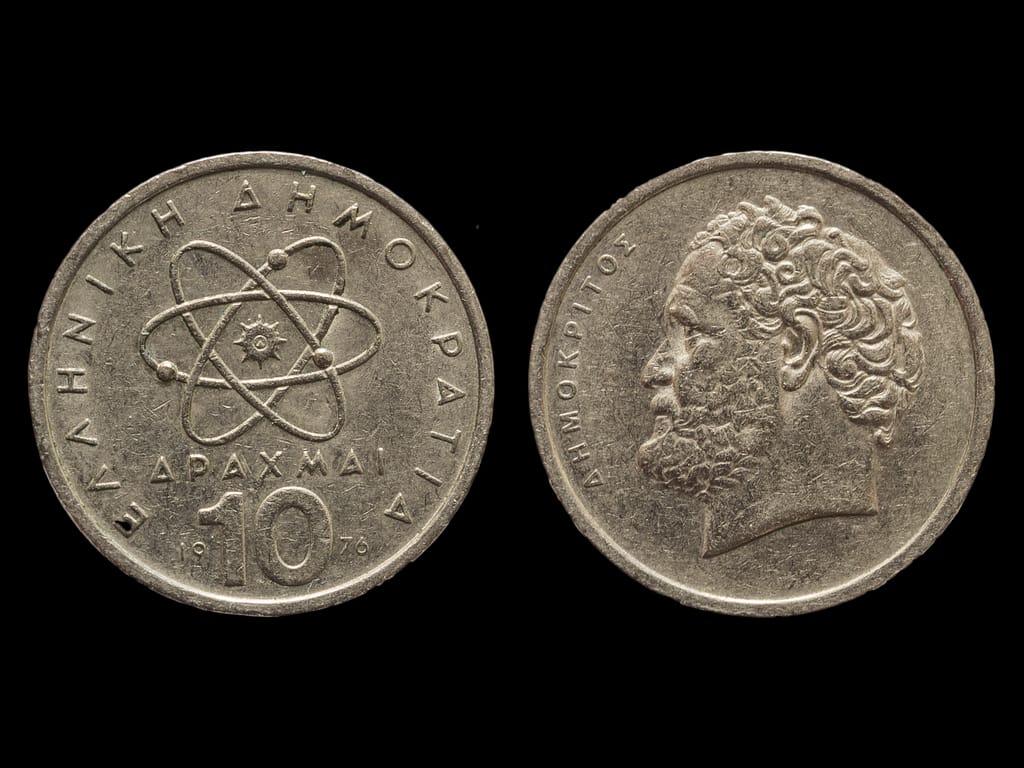Aristotle on sleep
Aristotle, a classical Greek philosopher born in 384 BCE, is one of the most influential thinkers in Western philosophy. He is also one of the earliest writers on sleep. The philosopher had a very holistic view of sleep, which included physiological and psychological components.
Aristotle’s theory of sleep
Aristotle believed that sleep was necessary for the body’s survival and vital for the health of the mind. He argued that sleep was a natural part of life, and necessary for the proper functioning of the body and the soul. He also developed a theory of sleep stages, and proposed that sleep was beneficial because it allowed the body to rest and recover. In addition, he argued that sleep was essential for the development and maintenance of memory, and for learning new things.
"It is inevitable that every creature which wakes must also be capable of sleeping, since it is impossible that it should continue actualizing its powers perpetually."
Aristotle, On sleep and sleeplessness
Aristotle’s theories have had a lasting impact on the way we understand and approach sleep in modern philosophy and science. Aristotle viewed sleep as a state of suspended animation, in which the body and soul were both in a state of rest. He believed that the soul is separated from the body during sleep, and that sleep is necessary for the soul to reflect and gain knowledge. He also believed that sleep is healing and rejuvenation, allowing the body and soul to rest and recuperate after a hard day of work.
Aristotle’s theories about sleep have been influential in the development of modern theories about sleep. For example, his view that sleep is healing and rejuvenation has been echoed in the modern understanding of sleep as a restorative process that helps the body and mind to recover from the stress of daily life.
Similarly, his belief that the soul is separated from the body during sleep has been incorporated into modern theories about dream states and their ability to provide insight and allow for creative problem-solving.

Sleep and the soul
Through his writings and teachings, Aristotle explored the role of sleep in the health and well-being of the soul. It’s worth mentioning that the ancient philosopher believed that the soul was the source of all life and was the fundamental principle of mind and body. He taught that the soul was the source of one’s rational thought and that it handled one’s emotions, desires, and personality.
Aristotle further believed that the soul was the ultimate source of human knowledge and creativity. Thus, the soul is inextricably linked to sleep. He argued that sleep was essential for the health of the soul and that it was necessary for the soul to be restored and rejuvenated after a day of activity. He believed that sleep was necessary for the soul to function optimally and to maintain its balance. Aristotle believed that sleep was essential for the soul to access its higher knowledge. He argued that during sleep, the soul could access its "inner eye" and gain insight into the world and its inner workings.
Aristotle believed that inner knowledge was the source of wisdom and creativity, and that it was only accessible through sleep. He argued that sleep allowed the soul to transcend its physical form and experience a higher level of consciousness. The philosopher believed that this higher consciousness was the source of spiritual enlightenment and was the key to achieving inner peace and contentment.
Though obviously outdated in many respects, Aristotle’s sleep-related philosophy has had a lasting impact on our modern understanding of sleep and the soul. His teachings continue to inspire and inform our understanding of the relationship between these two aspects of the human experience.
Aristotle and our understanding of sleep
One area in which Aristotle’s influence has been profound is in our understanding of sleep. Aristotle was one of the first thinkers to recognize sleep as a natural phenomenon, rather than a supernatural occurrence. In his treatise On Sleep and Sleeplessness, he argued that sleep was a necessary part of life, and that it was necessary for the body to rest and restore itself. He also argued that the soul must also rest during sleep, so it can be restored and strengthened. Aristotle also believed that sleep was necessary to preserve mental health. He argued that during sleep, the mind was refreshed and rejuvenated, allowing it to think more clearly and act more effectively.
Aristotle also believed that sleep was necessary for the proper functioning of the body, as it allowed the body to heal and repair itself. Aristotle’s views on sleep have been influential in the development of modern sleep science. He was one of the first to recognize the importance of a healthy sleep cycle, and we still use his theories today to diagnose and treat sleep disorders.

Sleep and happiness
Aristotle believed that sleep was an integral part of achieving true happiness, and that it was a necessary part of the human experience.
Aristotle considered sleep to be a restorative state that was essential to the maintenance of both physical and mental health. He argued that a good night’s sleep was essential for the proper functioning of the mind, as it allowed for a period of recuperation and rest. During this period of rest, the body’s natural energy and vitality were restored and the mind could process the day’s events and experiences. He argued that a good night’s sleep was essential for the proper functioning of the mind and for the maintenance of good mental health. Aristotle also argued that a good night’s sleep was essential for achieving true happiness.
According to Aristotle, true happiness depends on our ability to think and reason properly. He argued that a lack of sleep or a poor quality of sleep could lead to a decrease in our mental faculties, which would lead to a decrease in our capacity to achieve true happiness. Therefore, he believed that a good night’s sleep was essential for the attainment of true happiness.
Aristotle’s take on dreams
Aristotle believed that dreaming was perception, which he referred to as "the activity of the soul in a state of sleep". According to Aristotle, dreams functioned to interpret the world symbolically. He argued that, in dreaming, the soul can understand the most intimate thoughts and feelings of the body, allowing it to gain insight into the self.
Aristotle further argued that the purpose of dreaming is to enable the soul to gain knowledge. He believed dreams were divination and that they could make predictions about the future. Aristotle saw dreams to gain insight into the world, as well as to gain an understanding of ethical and moral issues. He believed dreams could provide guidance in decision-making, as well to understand the spiritual world.
In terms of the role dreams play in sleep, Aristotle argued dreams are essential to restful sleep. He believed dreams could help to restore the soul’s equilibrium, allowing it to better prepare itself for the day ahead. Dreams also served as self-reflection, allowing the dreamer to gain insight into their own thoughts and feelings. Aristotle argued dreams could help the dreamer develop a better understanding of reality, providing them with a deeper understanding of the world.they have to enrich our lives.

Natural sleep cycles
Aristotle’s writings on natural sleep cycles, which were based on his own observations of the natural world, laid the foundation for many later philosophical theories. Aristotle’s theory of natural sleep cycles was based on his observation that living organisms, including humans, experience periods of sleep and wakefulness.
According to Aristotle, these cycles are essential for maintaining physical and mental health. He argued humans should adhere to a regular sleep schedule, with periods of waking and sleeping occurring in regular intervals. Many philosophers later adopted this concept, including the Stoics and Epicureans. The Stoics and Epicureans both used Aristotle’s ideas on natural sleep cycles to develop their own theories of how to live a balanced life.
The Stoics believed humans should strive to maintain a regular sleep schedule, and should adhere to a certain number of hours for wakefulness and sleep. Similarly, the Epicureans argued humans should strive for a well-balanced lifestyle, which includes regular periods of rest and activity.
Aristotle’s ideas on natural sleep cycles also affected later philosophical thought in terms of the human soul. Aristotle believed that the human soul is composed of two parts: the rational soul, which handles thought and reason, and the appetitive soul, which handles physical desires and impulses. He argued that the appetitive soul is active during wakefulness, while the rational soul is active during sleep. Philosophers such as Plato and Aristotle’s student, Alexander of Aphrodisias, who used it to explain the relationship between the physical and spiritual realms later adopted this idea.
Aristotle’s ideas on natural sleep cycles influenced later philosophical thought in terms of morality. Aristotle argued that sleep is necessary for humans to be morally responsible, as it allows us to gain insight into moral dilemmas. He believed that moral judgments are made more accurately when they are made after a period of rest. Other philosophers later adopted this idea, including Thomas Aquinas and Immanuel Kant, who argued that we should make moral decisions after careful contemplation.
Analyzing Aristotle’s Views on Sleep Deprivation and Its Impact on Mental Health
Aristotle, the famed ancient Greek philosopher, was a firm believer in the importance of health and well-being, and he discussed several topics related to this in his works. One of these topics was the potential impact of sleep deprivation on mental health.
Aristotle believed that a lack of sleep could have a negative effect on a person’s mental state. He argued that sleep was essential for maintaining physical health, as well as mental health. He believed that when a person was deprived of sleep, their body was unable to properly process and store information, leading to a decrease in mental clarity and energy.
Aristotle argued that a lack of sleep could lead to emotional distress, as it could cause an individual to become irritable and quick to anger. Aristotle’s views on sleep deprivation and the impact it can have on mental health are still relevant today. Research has shown that sleep deprivation can lead to a decrease in cognitive functioning, resulting in problems with concentration and decision making. In addition, a lack of sleep can lead to depression, anxiety, and other mental health issues.
Conclusion
Aristotle’s philosophy on sleep is that it is necessary for the body and the soul to rest and recharge. He believed that sleep is a time for the body to recover from the stresses of the day and for the soul to contemplate the events of the day. He also believed that it was important for the body and soul to be in harmony with each other in order to achieve full health. Aristotle’s philosophy on sleep is still relevant today, as it emphasizes the importance of rest and relaxation for our physical and mental health.
Reference
- Dreams and Dreaming (Stanford Encyclopedia of Philosophy). (2019, November 27). https://plato.stanford.edu/entries/dreams-dreaming/
- The Internet Classics Archive | On Sleep and Sleeplessness by Aristotle. (n.d.). https://classics.mit.edu/Aristotle/sleep.html
- Wikipedia contributors. (2023a, January 28). On Divination in Sleep. Wikipedia. https://en.wikipedia.org/wiki/On_Divination_in_Sleep
- Wikipedia contributors. (2023b, January 28). On Sleep. Wikipedia. https://en.wikipedia.org/wiki/On_Sleep